5 poetry books to read this ESEA Heritage Month

September is East and Southeast Asian (ESEA) Heritage Month in the UK — a celebration of ESEA cultures, our histories and our futures.
It was launched in 2020 by besea.n (Britain’s East and Southeast Asian Network) in response to the connections formed between ESEA communities during lockdown. It was an isolating time for many of us, exacerbated by widespread anti-ESEA hate and racist media coverage.
Four years on and the rhetoric around ESEA Heritage Month has evolved from “representation” and “contributions to society”. As Amy Phung, co-founder of besea.n, tells me, “Now we’re seeing a movement towards cross-community solidarity, examining the intersections between climate, racial, gender and social injustices on a global scale.”
As an organiser and writer of ESEA and Scottish heritage, I echo this sentiment. For me, this year has revolved around tending to this sense of belonging. This includes creating and supporting our communities, but also interrogating solidarity and allyship to extend to all oppressed peoples, and understanding that our struggles are connected.
ESEA Heritage Month is an opportunity for all communities to come together, and to appreciate the uniqueness of our varying identities. In its honour, I have put together some of my favourite poetry by Scottish ESEA authors.
All books are available to purchase from the UK’s first ESEA online bookshop, Juniper by the Sea.
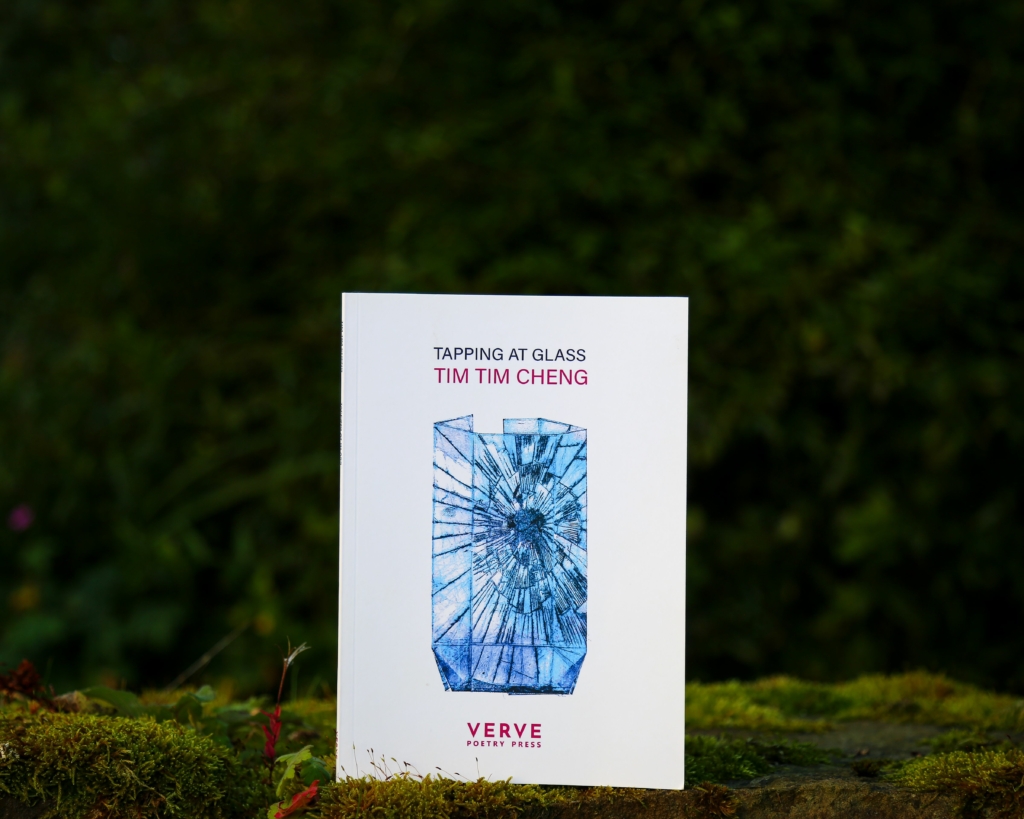
Tapping At Glass by Tim Tim Cheng (Verve Poetry Press, 2023)
“From the soil we make our son biscuits stored in ceramic bowls made with the same soil we dig, burn, grind into red dusts.”
— from Field Notes
Tapping At Glass is a dynamic journey through memory, language and the media between Scotland and Hong Kong.
I love the mix of emotions and styles in this pamphlet, which showcase the breadth of Tim Tim’s talent. From the humour in Boyfriend for Scale to the longing in Notes to Impossibility, she interconnects questions of belonging and family through tender (and painful) moments.
The natural world is incorporated in many poems in an organic way. This is intensified in Field Notes, which highlights the integration of humans with nature — and that this symbiosis is key to our future.
I have been fortunate enough to hear Tim Tim read and talk about the inspiration behind these poems. Her process is meticulous and artful, which shines throughout.
Her next book, The Tattoo Collector, is out in October with Nine Arches Press and is available to pre-order now.
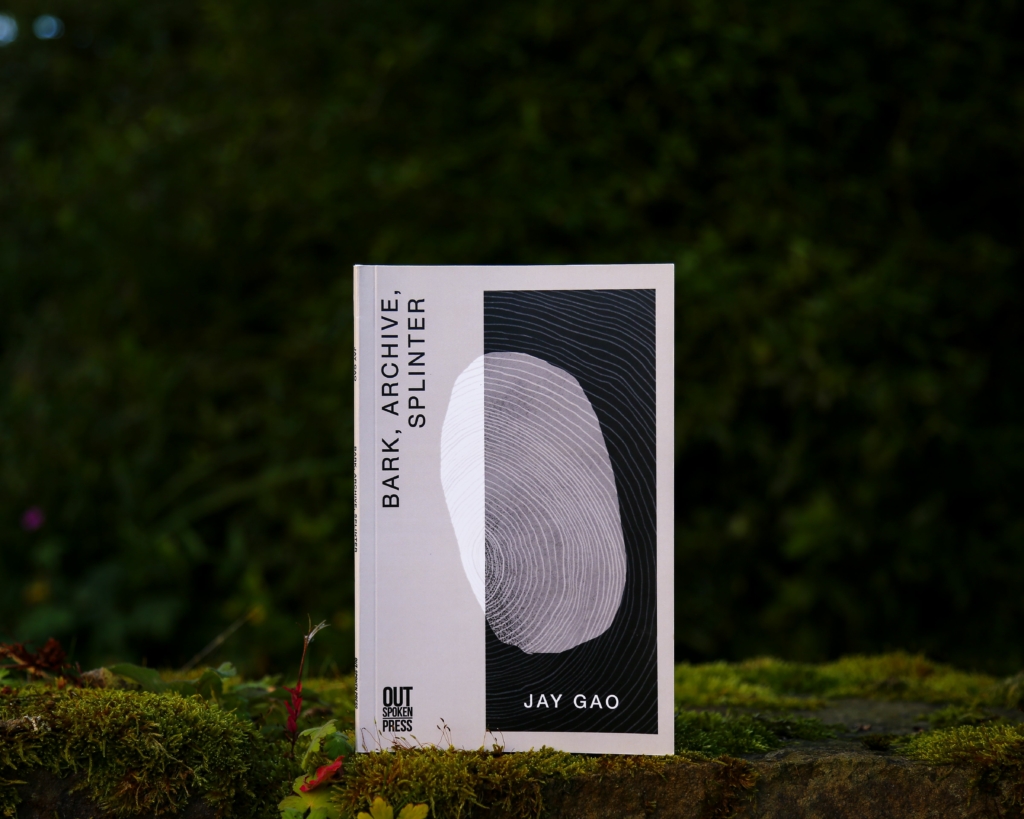
Bark, Archive, Splinter by Jay Gao (Out-Spoken Press, 2024)
“A tree adopted by a tour for the city of the dead
Paid by the hour to enter the names of invasive species into the catalogues of
Sodden butcher paper”
— from Bark, Archive, Splinter
Jay’s fifth book is a powerful text which frames the natural world as one of conflict. Described as an “ecopoetic experiment”, the pamphlet comprises one continuous yet fragmented poem, mirroring the author’s interrogation of different moments, questions and desires as well as the metaphorical wood of the poem’s title.
I first heard Jay perform this poem at an event organised by Red Bean Poetry while simultaneously reading it, which particularly enriched the experience. He unravels the language of citizenship — used interchangeably between humans and plants — in a confrontational and necessary way. The drifting between the abstract and the present creates a hypnotic yet jarring rhythm.
It is exciting to read a text that subverts the observational tweeness of ecopoetics — which also often dissociates humans from nature. The militarisation of flora feels like a sharp and urgent commentary on the colonial exploitation and destruction of the planet.
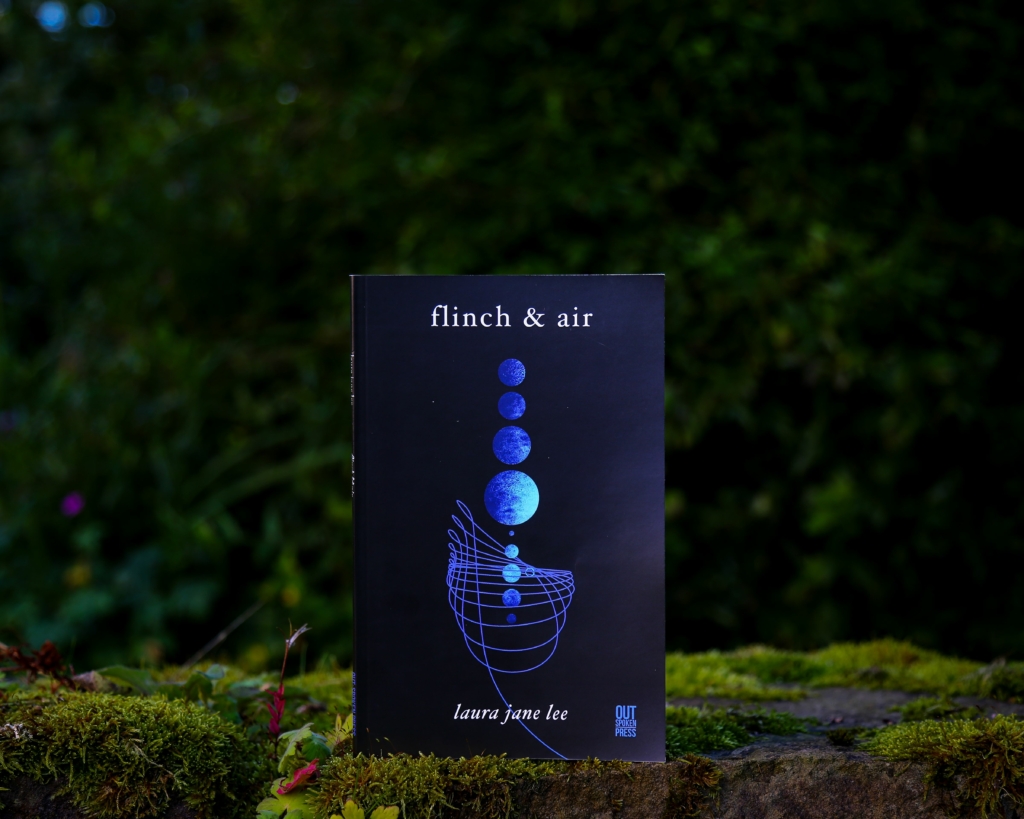
flinch & air by Laura Jane Lee (Out-Spoken Press, 2021)
“the country is always losing
itself in my bed/ i do not understand
but this is a museum denoting
the coldness of silver in which drowns itself a people”
— from a ceramic loss
flinch & air is a moving collection of poems which centres the experiences of ESEA women. Split into the chapters 她 ta [she; her], 我 ngo [I; me] and mothering the land, Laura explores identity and love through the perspectives of her ancestors and herself, while also touching on the 2019-2020 demonstrations in Hong Kong.
There is a strong theme of duality throughout, which extends beyond the metaphor of identity to the multiple truths and realities of the human experience. Laura reaches these depths through language and a variety of forms, adding to its impact.
The imagery of these poems will imprint on you (“to hold a mouthful of plastic questions”) but the beauty throughout this collection lies in its empathy.
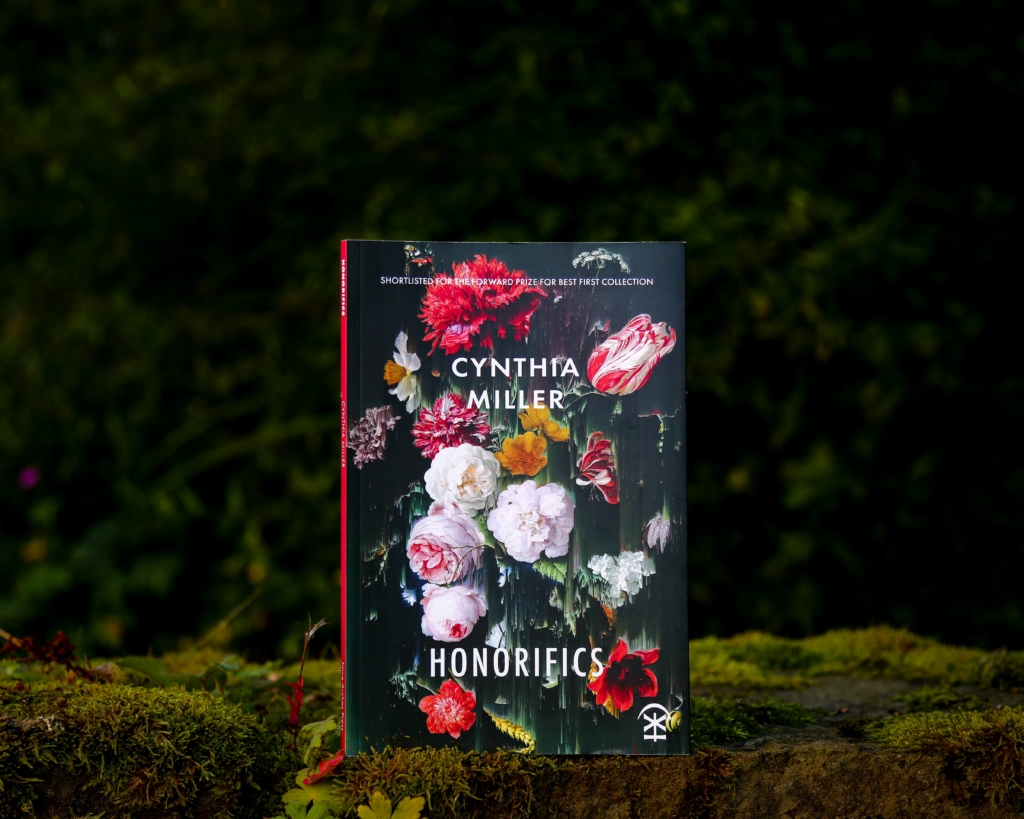
Honorifics by Cynthia Miller (Nine Arches Press, 2021)
“Your skin
the leather of papaya
left too long on the branch,
single persimmon bulb.
Let’s call you halogen fruit
that burned the brightest.
Let’s call you the girl
that made it out of there.”
— from Yellow
Cynthia’s collection is a thrilling journey through space, time… and jellyfish. She explores the complexities of home, expressing the difficulty and pain of returning in a particularly incisive way. I love how she weaves physics into her reflections: likening the presence of past memories to light years, following the ‘what ifs’ into different timelines.
She also confronts the themes of migration, emigration and immigration with nuance, and delves into the fantastical. The chapter Bloom centres jellyfish and includes one of my favourite poems, [spineless menace], which has the piercing line, “Without heart, brains or blood, the Home Secretary said, these invasive species do not contribute as much to the system as they take out.”
The comparison of (be)longing to the depths of sea and space feels poignant, and the pushing of boundaries in this collection is what makes it a joyous read. It is unsurprising that the book has won and been nominated for multiple awards.
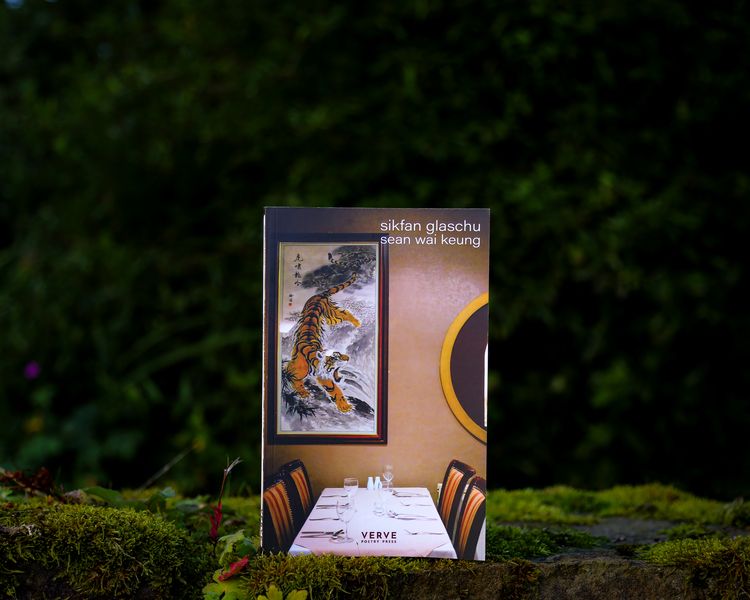
sikfan glaschu by Sean Wai Keung
“the eagerness / the hunger / the sense of mystery
the not-knowing exactly what would be waiting on the table
but knowing that whatever it was
it would be delicious”
— from sikfan glaschu
As Sean describes in the titular poem, sikfan translates to your food is ready. Glasgow is the backdrop for this glorious collection, which pays tribute to the city’s eateries. But you do not have to be familiar with the places (or even the city) to fall in love with these poems — food is a universal language.
Emotions are felt to the extremes but delicately balanced between joy, rage and melancholy. The specificity throughout this collection is fundamental, particularly in the chapter a lockdown changes everything/nothing where Sean’s acute reflections evoke the pain of separation and loneliness.
It is a funny and honest collection, and one which you will become very fond of. Sean’s voice is a necessary bridge as he unpicks how food relates to class, love and necessity — while highlighting its significance in culture and community.
“this place was built by migrants
and we have been eating here ever since”
— from chinatown, sikfan glaschu
For more information about ESEA Heritage Month, visit https://www.eseaheritagemonth.co.uk/. This year’s programme is supported by the Peiwen Tian Grant, in memory of besea.n’s core team member who passed away in July. The grant has helped grassroots organisers with the costs of their events this year.
All image credits: Aileen Lees
